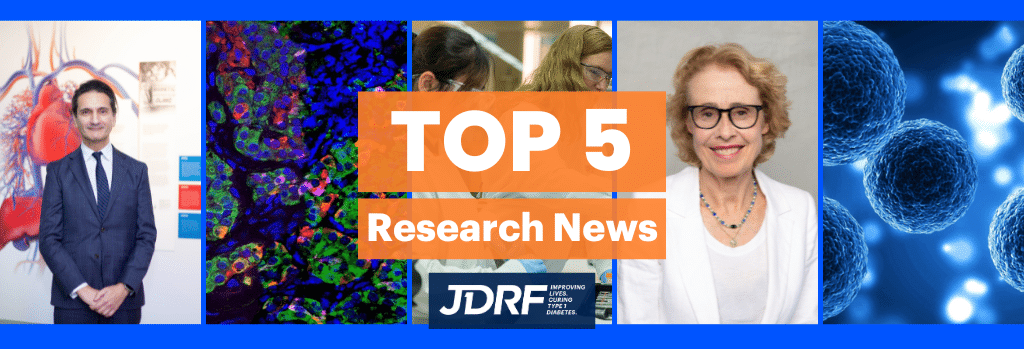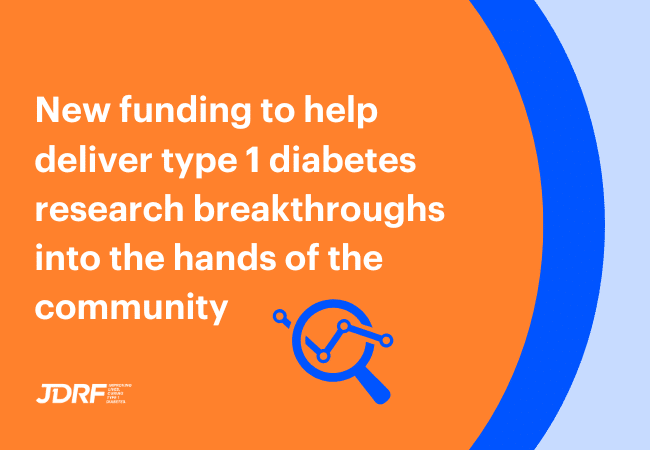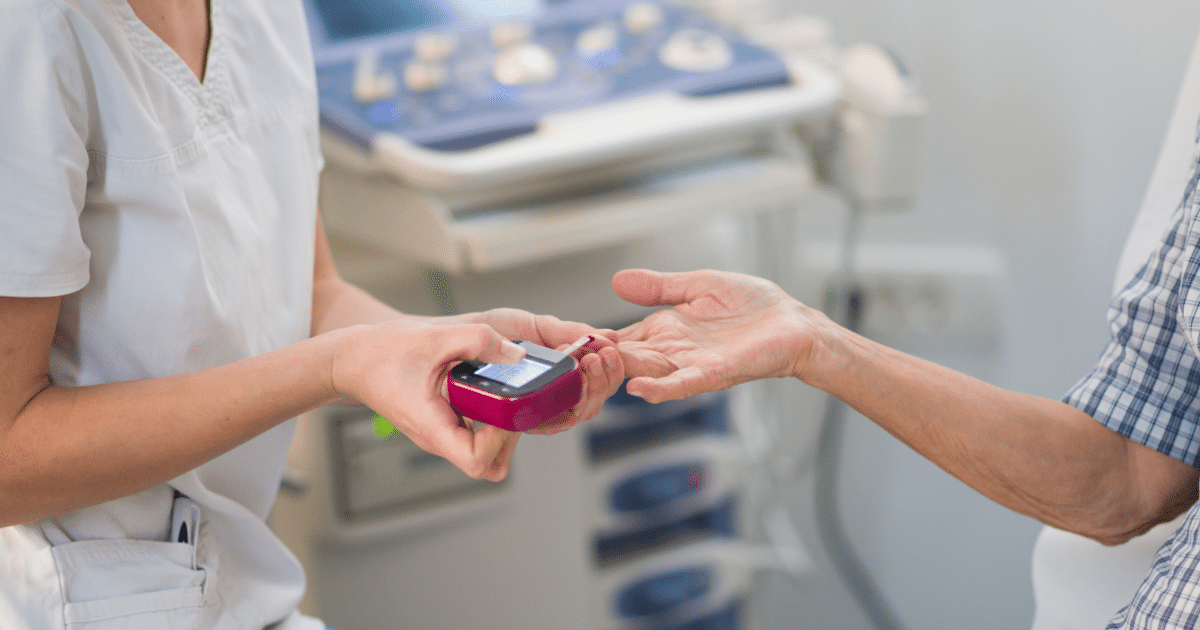The year that was in research: the top five research news from JDRF Australia in 2024

As we near the end of the year, we bring you this year’s top five research breakthroughs and announcements coming from JDRF Australia-funded type 1 diabetes (T1D) research. And what a year it was!
With support from JDRF Australia, researchers made the ground-breaking discoveries around supressing T1D and being able to regenerate insulin-producing beta cells in pancreas donors. We also saw exciting funding announcements in areas of research goals for JDRF Australia. And of course, we received the fantastic news that the main vehicle through which we fund cutting-edge T1D research – the Clinical Research Network – will continue, with an over $50 million commitment from the Government.
It’s definitely an exciting time for T1D research, and we can’t wait to see the scientific advancements that this investment will make!
-
World-first clinical trial shows commonly prescribed drug can supress T1D progression
First up was the fantastic news that a drug called baricitinib was shown to delay the progression of T1D in those newly diagnosed with the condition. The JDRF-funded clinical trial called BANDIT tested baricitinib, a rheumatoid arthritis drug, on 91 young adults with newly diagnosed T1D.
Encouragingly, the use of baricitinib led to higher insulin production, less need for injected insulin and better blood glucose management. Further research is ongoing, and JDRF has recently funded a project to understand who would best respond to baricitinib treatment.
-
Australian researchers regenerate insulin-producing cells
Early in the year came the exciting news that JDRF-funded researchers were able to regenerate insulin-producing cells with two drugs already approved for human use. The findings were published in the prestigious Nature journal and may represent a novel way to potentially reverse T1D.
Using donor pancreases from a child and adult with T1D, and from a donor without T1D, the team demonstrated that pancreatic cells that don’t normally produce insulin – called ductal cells – could be made to behave like beta cells (the insulin-producing cells that are damaged in T1D).
Further work with pre-clinical models is now needed to take this research to the next stage and JDRF has already committed over $1 million to extend the project.
-
Preventing T1D in the future: Further funding to understand what causes and drives the condition
In February, JDRF Australia and The Leona M. and Harry B. Helmsley Charitable Trust committed $3 million for research projects aimed at understanding how T1D develops, with the ultimate goal of preventing it. The investment funded five new research projects both in Australia and internationally using the invaluable biosamples from the JDRF-funded Environmental Determinants of Islet Autoimmunity (ENDIA) Study.
ENDIA is a world-first study tracking environmental exposures for the first 10 years of a child’s life, including in-utero. To date, it has collected over 165,000 samples including urine and stool samples, nasal swabs and mother’s breastmilk, to understand what in the environment could be triggering islet autoimmunity, a hallmark of T1D development. By understanding what causes and drives the condition, researchers hope to be able to develop therapies which prevent people from developing T1D in the first place.
-
New guidance set to change the way we diagnose T1D
In June, decades of research on the earliest stages of T1D development culminated in the release of a clinical guidance document on the best way to detect and monitor early-stage T1D. This could bring forward the diagnosis of T1D, making early detection of the condition a reality.
We previously thought that T1D developed only when people showed symptoms of the condition, but years of research have shown that T1D develops long before obvious symptoms show, in what is called early-stage T1D. Screening for and diagnosing T1D early has been shown to have many health benefits but up until now there was no standard advice for doctors to detect, follow up, or support people with early-stage T1D. That’s why JDRF gathered 66 international experts and led the way in publishing a consensus document which promises to radically change the way T1D is diagnosed and monitored.
-
Bringing precision medicine to T1D clinical care
Finally, JDRF Australia and Breakthrough T1D (formerly JDRF International) announced over $3m to fund five new research projects aiming to bring precision medicine to T1D care. Precision medicine has delivered great benefits in other areas, such as cancer, and involves treatment that is tailored to a person’s genes, environment, and lifestyle.
This would be a move away from the ‘one size fits all’ approach of glucose monitoring and insulin therapy that is currently utilised in T1D and move towards a future where the right therapy is given to the right person at the right time, all leading to better health outcomes.
And in recent and incredibly exciting news, we welcomed a $50.1 million commitment from the Government for the Type 1 Diabetes Clinical Research Network to continue for another five years. You can read all about that here.
Our research portfolio
Ground-breaking projects like these are only possible with support from our community. The future of 130,000 Australians living with T1D and the 8 more diagnosed each day depends on it.
To get involved, donate here.
Explore all research projects that JDRF Australia funds.




